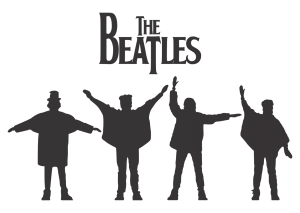Ah, the blog! A term you’ve heard a thousand times, but maybe never understood entirely. Once a simple online journal, now a versatile digital platform; blogs have changed as much as the people who keep them. But what is it that makes blogs such an irresistible corner of the internet? Is it just an online diary or something much more? And more importantly, why do people blog? This article aims to unfurl the many layers of blogging and why you should seriously consider starting one.
The Genesis of Blogging
It all began in the late 90s, when weblogs became a novel way for internet aficionados to document their lives or share valuable information. What we know as blogging today has its roots in these early experiments. From academics to hobbyists, various people found weblogs a convenient medium to communicate and connect. The word “blog” comes from the term “weblog,” a word mashup that perfectly captures the essence of logging one’s thoughts on the web.
What is a blog, you ask? In its most basic form, a blog is an updated website or webpage run by an individual or a small group, with entries displayed in reverse chronological order. Over time, however, blogs have evolved to serve various purposes of blogs, including, but not limited to educational, informational, and entertainment goals.
No longer is blogging just about keeping a digital journal; it’s about building communities, sharing unheard stories, and even creating businesses. What is blogging for? It’s a medium that has democratized information dissemination, making it possible for anyone with something to say to find a receptive audience.
Understanding Blog Posts
One cannot discuss blogs without talking about blog posts. But what is a blog post? Unlike articles, essays, or papers, blog posts are the backbone of any blog. They are individual entries that populate the blog, each addressing a particular topic or idea. Typically less formal than academic papers, but more organized than social media updates, blog posts allow for a wide range of expression.
Here’s the deal: blog posts can be as versatile as you want them to be. Want to write a tutorial? Go ahead. A personal narrative? Absolutely. An opinion piece? Be my guest. In fact, there are blogs that serve multiple purposes, carrying an assortment of posts ranging from interviews and reviews to recipes and how-to guides.
This brings us to what is the purpose of a blog post? Blog posts can serve multiple functions: they can inform, entertain, persuade, or even create a sense of community among readers. With the rise of SEO practices, blog posts have also become a tool for websites to increase their visibility on search engines.
The blogosphere is a realm of endless possibilities. From mommy bloggers sharing parenting tips to tech enthusiasts discussing the latest gadgets, there’s a blog post for everyone. Why write a blog post? Because it offers you a space to share what you know or believe in, and chances are, there’s an audience out there eager to listen.

The Mechanics: How Does Blogging Work
While blogging has become more sophisticated over the years, the fundamental principle remains the same: it’s about sharing content online. So, how does blogging work? First off, you need a platform. There are various blog hosting websites like WordPress, Blogger, and Medium, which make setting up a blog as easy as pie.
Once the blog is up and running, it’s all about maintaining it with regular posts. To engage readers, you need to update your blog frequently. Some bloggers post daily, while others may post weekly or even monthly, depending on their niche and audience needs.
Search engine optimization, or SEO, has become crucial in the blogging ecosystem. By using relevant keywords and optimizing content, bloggers can improve their blog’s visibility on search engines, thus increasing traffic and, potentially, revenue.
Then comes monetization, an optional yet highly lucrative avenue for bloggers. With enough traffic, blogs can make money through various means, such as ad revenue, sponsored posts, and affiliate marketing.
Lastly, what is a blog for if not for building connections? By engaging with your readers through comments, social media, and newsletters, you create a community around your blog.
The Purposes and Potential
Blogs have come a long way from being mere digital diaries. They are a multi-faceted platform that serves several purposes of blogs. For individuals, blogs can be a space to share personal journeys, display artistic talent, or offer wisdom. For businesses, blogs serve as a potent tool for marketing, customer engagement, and brand building.
But here’s the real kicker: blogs are not just for the self. They can be altruistic, too. Think about blogs that aim to raise awareness about social issues, be it environmental conservation or mental health. These blogs contribute to society in meaningful ways, sparking discussions and encouraging action.
In the world of academia, blogs serve as an informal channel for knowledge dissemination. Professors and students alike use blogs to discuss theories, research, and findings that may not yet be ready for formal publication, but are valuable nonetheless.
With the surge in influencer culture, blogs have become a platform for product reviews and recommendations, shaping consumer behavior in significant ways.
Lastly, for professionals and freelancers, blogs can serve as an online portfolio, displaying skills and expertise that can attract potential employers or clients. Why do people blog? Because it offers a myriad of ways to express, inform, and even earn.

What’s the Buzz: Blogging Trends
As the world evolves, so does blogging. What is blogging for today might differ from its original purpose due to various influences like technological advancements, changing user behavior, and global events.
For instance, video blogs or “vlogs” are gaining traction. Platforms like YouTube have made it easier for bloggers to reach a wider audience without needing excellent writing skills.
Interactive blogs, enriched with clickable infographics, polls, and even quizzes, are seeing a rise in popularity, offering readers not just information, but an engaging experience.
Then there’s the trend of microblogging, popularized by platforms like Twitter and Tumblr. These platforms allow users to blog, but in a much-condensed format, catering to the decreasing attention spans of the digital age.
Another trend to watch is the rise of AI in blogging. Algorithms are now capable of producing blog posts, although human intervention remains crucial for quality and authenticity.
Lastly, with the increase in remote work, professional blogs focusing on remote work tools, tips, and ethics are experiencing a surge in readership. Why to start a blog now? To be a part of this evolving landscape.
The Risks and Challenges
While the world of blogging sounds fascinating, it’s not without its pitfalls. One of the main challenges in blogging is the sustainability of content. With a multitude of blogs available on almost every topic imaginable, how does one make their blog stand out?
Another challenge is the constant need for updates. A dormant blog can quickly lose its audience, making consistency a key factor in successful blogging.
Then there’s the issue of credibility. With the rise of fake news and misinformation, bloggers have a responsibility to ensure the accuracy and reliability of their content.
Monetization also presents its set of challenges. While several avenues exist for making money through blogs, building a steady income stream is not easy and requires a significant amount of time and effort.
Lastly, staying updated with the latest SEO trends and algorithms is crucial for a blog’s visibility, but can be incredibly time-consuming and complex.
Why You Absolutely Need a Blog
You might be wondering, why write a blog in the first place? Simply put, in today’s digital age, not having a blog is like being a musician without a stage.
Firstly, blogs are an excellent way to establish your personal brand. Whether you’re a professional, a business owner, or just someone with a hobby, a blog can serve as a platform to showcase your expertise and share your knowledge with the world.
Secondly, blogs are a potential source of income. With consistent effort and smart monetization strategies, blogs can become a steady source of revenue.
Thirdly, blogging can enhance your writing skills. The practice of consistently penning down your thoughts not only improves your writing, but also enhances your ability to articulate ideas clearly.
Fourthly, blogging connects you to like-minded individuals. Whether it’s through comments, social media shares, or direct emails, blogging offers a way to meet people you might never have encountered otherwise.
Lastly, why to start a blog? Because it can be incredibly fulfilling. The sense of accomplishment that comes from sharing something valuable and receiving positive feedback is unparalleled.

Navigating the SEO Maze
Search engine optimization (SEO) is more than a buzzword in the world of blogging; it’s an essential toolkit for bloggers to gain visibility in an increasingly crowded digital landscape. But how does blogging work with SEO? Well, SEO involves a set of practices that help your blog rank higher in search engine results. This involves keyword research, which is crucial for identifying the terms that your target audience is searching for.
The second critical component of SEO is on-page optimization. This includes optimizing the meta descriptions, headers, and the overall structure of your blog posts to make them more SEO-friendly. Internal linking within your posts not only enhances the user experience, but also sends positive signals to search engines about the relevance of your content.
Off-page SEO is another vital element that contributes to your blog’s visibility. This involves garnering backlinks from reputable websites, which act as endorsements for the quality of your content. Social signals, such as likes and shares on social media platforms, also play a part, although their direct impact on SEO is a subject of ongoing debate.
A word of caution: SEO is not a one-time setup, but an ongoing process. Search engines frequently update their algorithms, making it imperative for bloggers to stay updated and tweak their SEO strategies accordingly.
Analytic tools like Google Analytics can provide invaluable insights into how your SEO efforts are paying off. These tools can track various metrics like page views, bounce rates, and conversion rates, helping you understand what’s working and what needs adjustment.
The Ethical Dimensions of Blogging
While the internet offers unprecedented freedom of speech, this liberty comes with its set of responsibilities. What is the purpose of a blog if it misguides or misinforms? Bloggers have an ethical obligation to ensure that their content is accurate, unbiased, and respectful of differing opinions.
Firstly, there’s the issue of plagiarism. Copying someone else’s work is not just unethical, but can also lead to severe legal repercussions. Always make sure to give proper credit if you are citing or borrowing from another source.
Secondly, disclosure is crucial, especially when you’re writing reviews or promoting products. It’s ethical (and in some jurisdictions, legally required) to disclose any affiliations, sponsorships, or any other factors that could influence your opinion.
Thirdly, the anonymity that the internet offers can sometimes lead to lapses in ethical judgment. Harassment, trolling, or spreading misinformation are actions that no blogger should engage in. The rule of thumb here is straightforward: If you wouldn’t say it to someone’s face, don’t say it on your blog.
The treatment of user data is another ethical concern, especially with increasing awareness about digital privacy. If your blog collects data from its visitors, whether through cookies or subscription forms, it’s essential to have a clear and transparent privacy policy in place.
Lastly, inclusivity should be a cornerstone of your blogging ethics. The internet is a global space, home to diverse cultures, and sensibilities. Being mindful of this diversity and refraining from any form of discriminatory or hateful speech should be a given for any responsible blogger.

The Future of Blogging: What Lies Ahead
If there’s one thing we can say with certainty, it’s that blogging is not going anywhere. But what is a blog for in a future filled with emerging technologies like AI, AR, and blockchain? Well, the potential is staggering.
For one, immersive experiences are becoming more prevalent. With the development of virtual reality (VR) and augmented reality (AR), future blogs might not be “read” at all; they might be experienced in a fully interactive 3D environment. Imagine walking through a cooking blog where you can virtually taste the food, or a travel blog where you can experience the destination in real-time!
Artificial intelligence (AI) is another frontier that blogging is rapidly approaching. While AI-generated content is still in its infancy, advancements in natural language processing could revolutionize how content is created and customized for individual readers.
Blockchain technology has the potential to introduce a new layer of credibility and security to blogging. With blockchain, each blog post could be time stamped and recorded in a decentralized database, providing indisputable proof of originality.
Personalization is another trend to watch. With the increasing sophistication of machine learning algorithms, future blogs could tailor content to individual preferences and behaviors in real-time, providing an unprecedented level of user engagement.
Lastly, let’s talk about sustainability. As the world becomes increasingly conscious of its environmental footprint, future blogs could move towards more sustainable web hosting solutions, carbon-neutral platforms, and even content focused on eco-conscious living.
Conclusion: The Never-Ending Journey
As we reach the end of this comprehensive exploration, remember that why to start a blog is a question with a multitude of answers. The blogosphere is a continuously evolving entity, offering unlimited avenues for creativity, connection, and even income. From its humble beginnings as an online journal to its current status as a multi-purpose platform, blogging has been and continues to be, a transformative force in the digital landscape.
So, if you’ve been pondering over why to write a blog, the answer is simple yet profound: Because the world is waiting to hear your unique voice. Whether you aim to educate, entertain, or elevate, a blog provides the canvas for you to paint your masterpiece.


